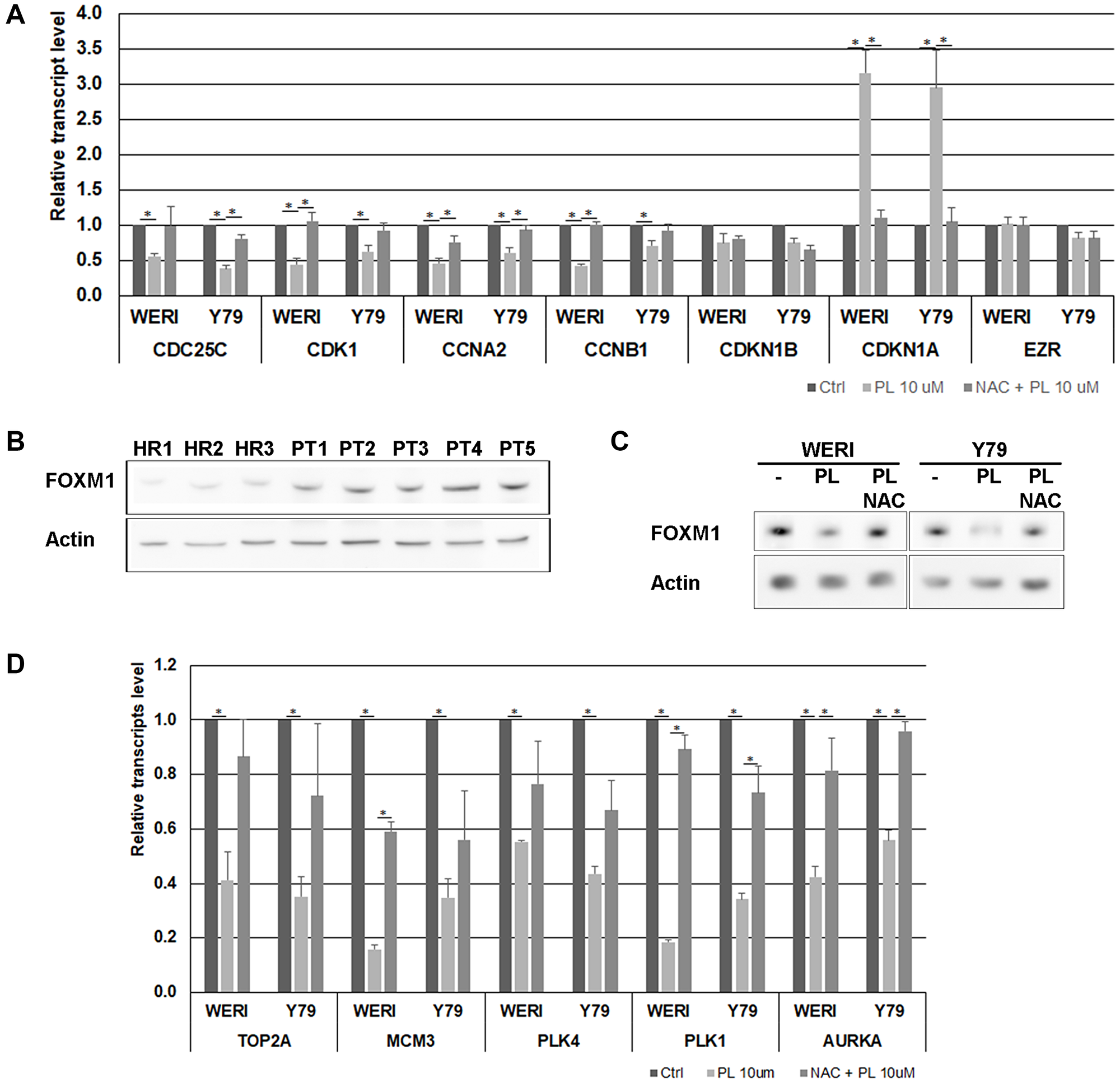Oncotarget published "Piperlongumine promotes death of retinoblastoma cancer cells" which reported that while retinoblastoma initiation is triggered by the inactivation of both alleles of the retinoblastoma tumor suppressor gene in the developing retina, tumor progression requires additional epigenetic changes, retinoblastoma genomes being quite stable.
In this report, the authors analyzed the pro-death effect of piperlongumine, a natural compound isolated from Piper longum L., on two human retinoblastoma cell lines, WERI-Rb and Y79. The effects of PL on cell proliferation, cell death and cell cycle were investigated.
PL effectively inhibited cell growth, impacted the cell cycle by decreasing the level of cyclins and CDK1 and increasing CDKN1A and triggered a caspase-3 independent cell death process in which reactive oxygen species production is a major player.
Indeed, PL toxicity in retinoblastoma cell lines was inhibited by a ROS scavenger N-acetyl-l-cysteine treatment.
These Oncotarget findings suggest that PL reduces tumor growth and induces cell death by regulating the cell cycle.
These Oncotarget findings suggest that PL reduces tumor growth and induces cell death by regulating the cell cycle.
Dr. Nathalie Allaman-Pillet from The Institute for Research in Ophthalmology in Switzerland said, "Retinoblastoma is a malignant tumor derived from photoreceptor precursor cells."
Although the survival rate of patients with retinoblastoma is extremely high in developed countries, left untreated advanced tumors limit eye preservation and expose patients to risks of metastasis and death.
A multi-step model for the progression of normal retina to retinoblastoma has been proposed, the first step being the inactivation of both alleles of the tumor suppressor gene RB1 in the developing retina.

Figure 3: Effects of PL on cell cycle-regulatory factors in WERI-Rb and Y79 cells. (A) The expression of CDC25C, CDK1, CCNA2, CCNB1, CDKN1A and CDKN1B was measured at mRNA levels using real time RT-PCR. EZR transcript, encoding a cytoplasmic peripheral membrane protein, was used as a negative control and GAPDH was used as an internal control gene. Data represent the mean ± SEM (n = 3). *P < 0.05 by Student's t test. (B) The content of FOXM1 was determined in three healthy mouse retina (HR) and in five primary mouse retinoblastoma (PT) by western blot analysis. (C) WERI-Rb and Y79 were exposed to 10 μM PL for 24 h without or with 1 h pre-treatment with 3 μM NAC. FOXM1 protein level was determined by western blot experiment. (D) The expression level of FOXM1 target genes was determined by real time RT-PCR. GAPDH was used as an internal control gene. Data represent the mean ± SEM (n = 3). *P < 0.05 by Student's t test.
PL was described as an anticancer compound modulating apoptosis, ROS production, cell proliferation, migration and invasion, and showing selective cytotoxic effect on several cancer cell types including pancreatic, renal, prostate, and breast cancers.
In this report, they studied the death potential of PL on two human retinoblastoma cell lines, WERI-Rb and Y79.
The Allaman-Pillet Research Team concluded in their Oncotarget Research Output, "Our study reports that PL induces retinoblastoma cells death through the accumulation of ROS resulting in cellular oxidative stress. A potential role of FOXM1 in this cell death process has to be verified using inhibitors or following FOXM1 overexpression. These data provide in vitro evidence that PL could serve as a potential anticancer molecule in retinoblastoma treatment."
Sign up for free Altmetric alerts about this article
DOI - https://doi.org/10.18632/oncotarget.27947
Full text - https://www.oncotarget.com/article/27947/text/
Correspondence to - Nathalie Allaman-Pillet - [email protected]
Keywords - cancer, retinoblastoma, piperlongumine, programmed cell death
About Oncotarget
Oncotarget is a bi-weekly, peer-reviewed, open access biomedical journal covering research on all aspects of oncology.
To learn more about Oncotarget, please visit https://www.oncotarget.com or connect with:
SoundCloud - https://soundcloud.com/oncotarget
Facebook - https://www.facebook.com/Oncotarget/
Twitter - https://twitter.com/oncotarget
LinkedIn - https://www.linkedin.com/company/oncotarget
Pinterest - https://www.pinterest.com/oncotarget/
Reddit - https://www.reddit.com/user/Oncotarget/
Oncotarget is published by Impact Journals, LLC please visit https://www.ImpactJournals.com or connect with @ImpactJrnls
Media Contact
[email protected]
18009220957x105



